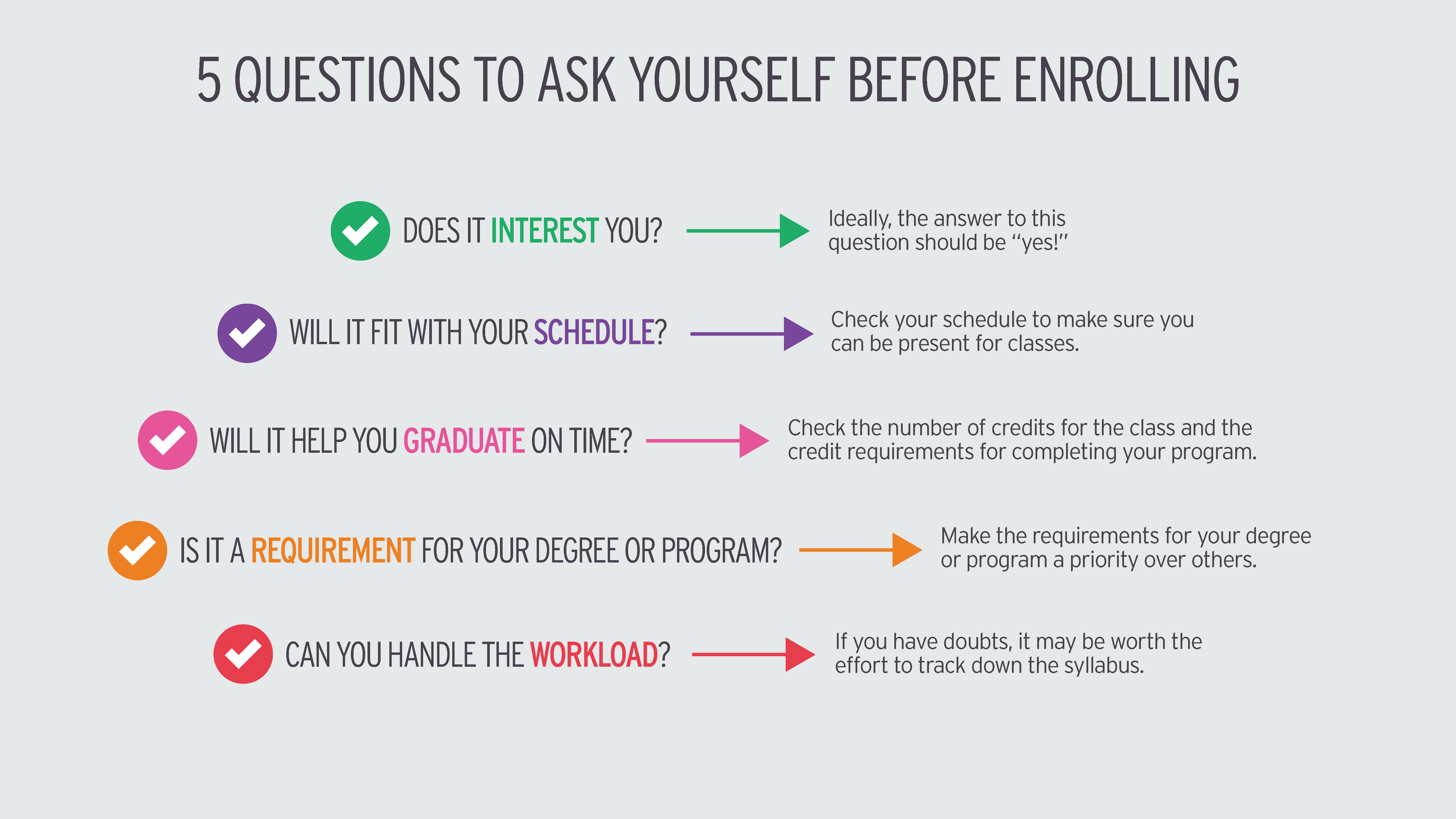
If the process of choosing the right courses and understanding the courses you need to take seems daunting or overwhelming, there is no reason to panic. There are professionals whose job it is to help you with these kinds of issues. They are typically called academic advisors, and their role at an institution of higher learning is to consult with students in order to help them develop short and long-term plans and goals. An advisor will know about or be able to find out about different sets of requirements for the programs you are interested in and registration procedures. They may also have information and advice about particular courses or instructors, and they will have valuable experience working with students in your situation. Advisors can be a great resource for a student looking for help with selecting a course, so don't hesitate to seek their assistance.
After you've read a course description and carefully considered factors like whether a course fits into your schedule or whether it will be useful in satisfying the requirements of your degree, there is even more you can do to learn about a course in order to help you make your decision. You might see if you can find a syllabus online from when the course was offered in the past, so you can investigate the workload and the kinds of work that is assigned in the course.
Another good idea is to find out as much you can about the instructor, since they will play a significant part in whether you have a positive experience with the course. The instructor might have a webpage, either through their academic department or elsewhere, which includes vital personal and professional details about them. There are also internet sites where students anonymously review their instructors; though another student's experience won't necessarily match up with yours, these sites can be an interesting way to gauge popular opinion about an instructor.